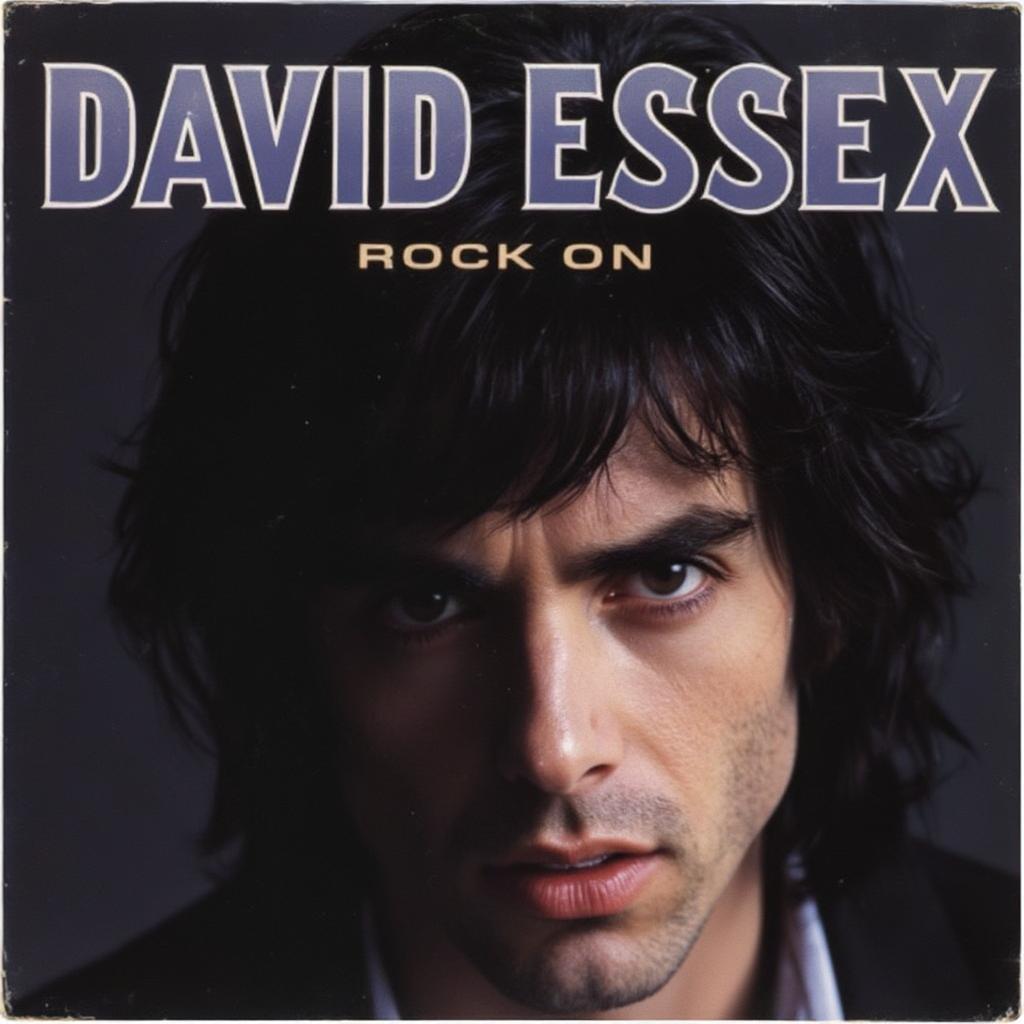The Enduring Legacy of Classic Rock Bands: A Deep Dive

Classic Rock Bands. The very words conjure images of soaring guitar riffs, thunderous drum solos, and anthemic vocals. But what is it about these bands that continues to resonate with audiences across generations? More than just music, they represent a spirit, an attitude, a rebellion that still feels relevant today. Let’s delve into the fascinating world of classic rock, exploring its origins, its defining characteristics, and its enduring influence.
The term “classic rock” itself is a bit fluid. While it’s often used to describe bands that emerged in the late 1960s and throughout the 1970s, its influence extends far beyond those years. Think of groups like Led Zeppelin, whose blues-infused rock still commands respect and admiration. It wasn’t just about catchy tunes; it was about musicianship, raw energy, and a sense of daring that pushed the boundaries of popular music. [link-1|psychedelic rock bands] This period saw the rise of bands that were not just musicians but also artists, crafting albums that were often considered entire works of art, not just collections of singles.
Defining Characteristics of Classic Rock
What elements truly separate classic rock from other genres? It’s a combination of factors that contribute to its distinctive sound and lasting appeal. Here are some key defining characteristics:
- Instrumentation: The classic rock sound relies heavily on the core instruments of rock and roll: electric guitars (often with distorted tones), bass guitars, drums, and vocals. Keyboards, like Hammond organs and pianos, also often feature prominently. The use of multiple guitarists was another important factor, creating complex layers and harmonies.
- Songwriting: Classic rock lyrics tend to be more introspective and often deal with deeper themes compared to earlier rock and roll. While love and relationships are still common themes, many songs touch upon social issues, personal struggles, and even fantastical concepts. The melodies are usually catchy and memorable, with a strong emphasis on memorable hooks.
- Performance: Classic rock bands are renowned for their dynamic live performances. This includes extended instrumental jams, improvisation, and a raw, unpolished energy that often contrasted with more polished studio recordings. Stage presence was crucial, with many bands known for their extravagant outfits and high-energy theatrics.
Key Classic Rock Bands and Their Impact
The list of influential classic rock bands is extensive, but a few stand out for their massive impact on music:
- The Beatles: While often categorized as pop, The Beatles’ experimental approach to songwriting and studio production significantly influenced many classic rock bands. Their shift from simple pop to more complex and psychedelic rock paved the way for many bands to follow.
- The Rolling Stones: Known for their raw, blues-infused rock and rebellious image, The Stones helped define the attitude and energy of classic rock. Their longevity and consistent touring schedule have made them a cornerstone of the genre.
- Led Zeppelin: With their heavy riffs, mythological lyrics, and powerful performances, Led Zeppelin pushed the boundaries of rock music. They blended blues, folk, and rock into a unique sound that influenced countless artists.
- Pink Floyd: Renowned for their concept albums, psychedelic soundscapes, and theatrical live shows, Pink Floyd redefined what rock could achieve. They demonstrated the power of using music to tell a story and explore complex themes.
“Classic rock is more than just a genre; it’s a cultural movement. It represents a period of experimentation and boundary-pushing that continues to inspire artists today,” says Dr. Alistair Finch, a renowned musicologist at the University of Oxford specializing in the study of 20th-century music. [link-2|david essex rock on] He points to the influence of these bands on not only rock but also alternative, indie, and even some elements of modern pop.
Why Classic Rock Still Resonates Today
Despite its age, classic rock continues to resonate with new generations. Several factors contribute to this lasting appeal:
- Nostalgia: For many, classic rock provides a sense of nostalgia, transporting them back to a particular time in their lives. These songs are often associated with significant personal memories and cultural moments.
- Timeless Themes: The lyrics of many classic rock songs touch upon timeless themes of love, loss, rebellion, and the search for meaning. These are universal experiences that continue to be relevant to people of all ages.
- Musical Prowess: The musical skill and artistry displayed by classic rock musicians are undeniable. The technical mastery of the musicians, their ability to create complex arrangements, and their raw talent are all things that music fans still appreciate today.
- Rebellion and Individuality: Classic rock often represented a rebellion against societal norms and a celebration of individuality. This spirit of defiance and self-expression remains appealing, particularly to younger generations.
How has Classic Rock Impacted Modern Music?
Classic rock’s influence is undeniably widespread, and has heavily influenced today’s music scene. Bands are continually referencing, re-imagining, and often recreating classic rock’s musical qualities.
- Alternative Rock: Many bands within the alternative rock scene of the 1990s owe a huge debt to classic rock. The raw sound, distorted guitar tones, and introspective lyrics of bands like Nirvana and Pearl Jam can all be traced back to classic rock influences.
- Indie Music: The DIY approach and independent spirit that classic rock embodied have been adopted by countless indie artists. The emphasis on songwriting, musicality, and performance over commercial considerations is a direct result of the legacy of classic rock.
- Heavy Metal: The heavy guitar riffs and powerful drumming of classic rock played a crucial role in the development of heavy metal. Many of the techniques and styles used by metal bands can be traced back to the innovations of classic rock guitarists like Jimmy Page and Ritchie Blackmore.
- Pop Music: Even contemporary pop music draws on the melodies, structures, and even some of the production techniques that were pioneered in classic rock. The influence can sometimes be subtle, but it’s undeniably present.

“One of the most interesting aspects of classic rock is how it continues to evolve. Artists are constantly taking those classic sounds and updating them for a modern audience,” notes Professor Evelyn Hayes, head of the Music History Department at Berklee College of Music. “It’s not about simply copying what’s been done before, but about taking the essence of what made classic rock so great and finding new ways to express it.”
The Future of Classic Rock
While some may consider classic rock to be a relic of the past, its influence is very much alive and thriving. New generations are discovering these bands through streaming services, digital playlists, and re-releases of classic albums. There are also newer bands who are taking the core elements of classic rock and blending them with more contemporary styles.
- Revival Bands: Many bands today are dedicated to replicating the sound and feel of classic rock. Some are tribute bands, focusing on the works of one particular group, while others try to create a sound that feels fresh but still embraces the spirit of classic rock.
- Blending Genres: The best of the newer bands are those who take classic rock as a starting point and then integrate other musical styles. By mixing other genres, they are creating music that is both innovative and rooted in a rich heritage.
- Live Music: The live experience remains crucial to the lasting legacy of classic rock. Bands that are able to deliver captivating live performances are going to continue to draw crowds and inspire new generations of musicians.
Keeping the Flame Alive
As musicians, we in Shock Naue understand the responsibility that comes with being a part of the rock tradition. We’re not just recreating what’s come before; we aim to push it forward, much like our influences did. The enduring appeal of bands that have stood the test of time is a testament to the power of great music. It is our duty to keep that fire burning. [link-3|rock the house] The impact of these bands still reverberates through our sounds, our approach to our instruments, our stage presence. That is why classic rock bands will forever be an intrinsic part of the musical landscape.
Conclusion
The legacy of classic rock bands is more than just a collection of songs. It is a cultural phenomenon that continues to shape the musical landscape. From the innovative songwriting to the dynamic live performances, classic rock has set a standard for musical excellence that still resonates today. Whether you are a lifelong fan or new to the genre, the music of these iconic bands continues to offer inspiration, entertainment, and a reminder of the enduring power of rock and roll.
Frequently Asked Questions (FAQs)
-
What defines a band as “classic rock”?
Classic rock typically refers to bands that rose to prominence during the late 1960s and 1970s, with a focus on traditional rock instrumentation, powerful songwriting, and dynamic live performances. It often includes blues, psychedelic, and hard rock influences. -
Who are some of the most influential classic rock bands?
Some of the most influential bands include The Beatles, The Rolling Stones, Led Zeppelin, Pink Floyd, The Who, Black Sabbath, and Queen. These bands have made significant contributions to the development and evolution of rock music. -
Why is classic rock still popular today?
Classic rock remains popular due to nostalgia, timeless themes in the lyrics, the high levels of musicianship, and the sense of rebellion and individuality that the music embodies. New generations discover it through various channels and find the music’s energy compelling. -
How has classic rock influenced modern music genres?
Classic rock has influenced numerous modern genres, including alternative rock, indie music, heavy metal, and even pop. Its emphasis on songwriting, instrumentation, and performance can still be heard in the music of many contemporary artists. -
Are there any modern bands that are considered “classic rock” now?
While the term “classic rock” is usually associated with bands from a specific era, some modern bands capture the spirit of classic rock through their music and performance styles. Bands are regularly cited that are attempting to bring back or give a nod to the classic rock style. -
What are the key musical elements of classic rock?
The key elements include the use of electric guitars, bass guitars, drums, and vocals, often combined with keyboards. Lyrics often touch upon themes of love, loss, social issues, and personal struggles. The focus was also on musicianship, energy, and a sense of artistic expression. [link-4|lagu slow rock] -
What is the difference between rock and roll and classic rock?
Rock and roll emerged in the 1950s and focused on simple structures, catchy melodies, and youthful themes. Classic rock, which followed in the late 1960s and 1970s, incorporated more complexity in songwriting, extended instrumental sections, and a greater range of lyrical themes. -
How can I discover more classic rock bands?
You can discover more classic rock bands through streaming services, digital playlists, radio stations that focus on classic rock, and through recommendations from friends and music publications. A good starting place might also be online discussion forums.




